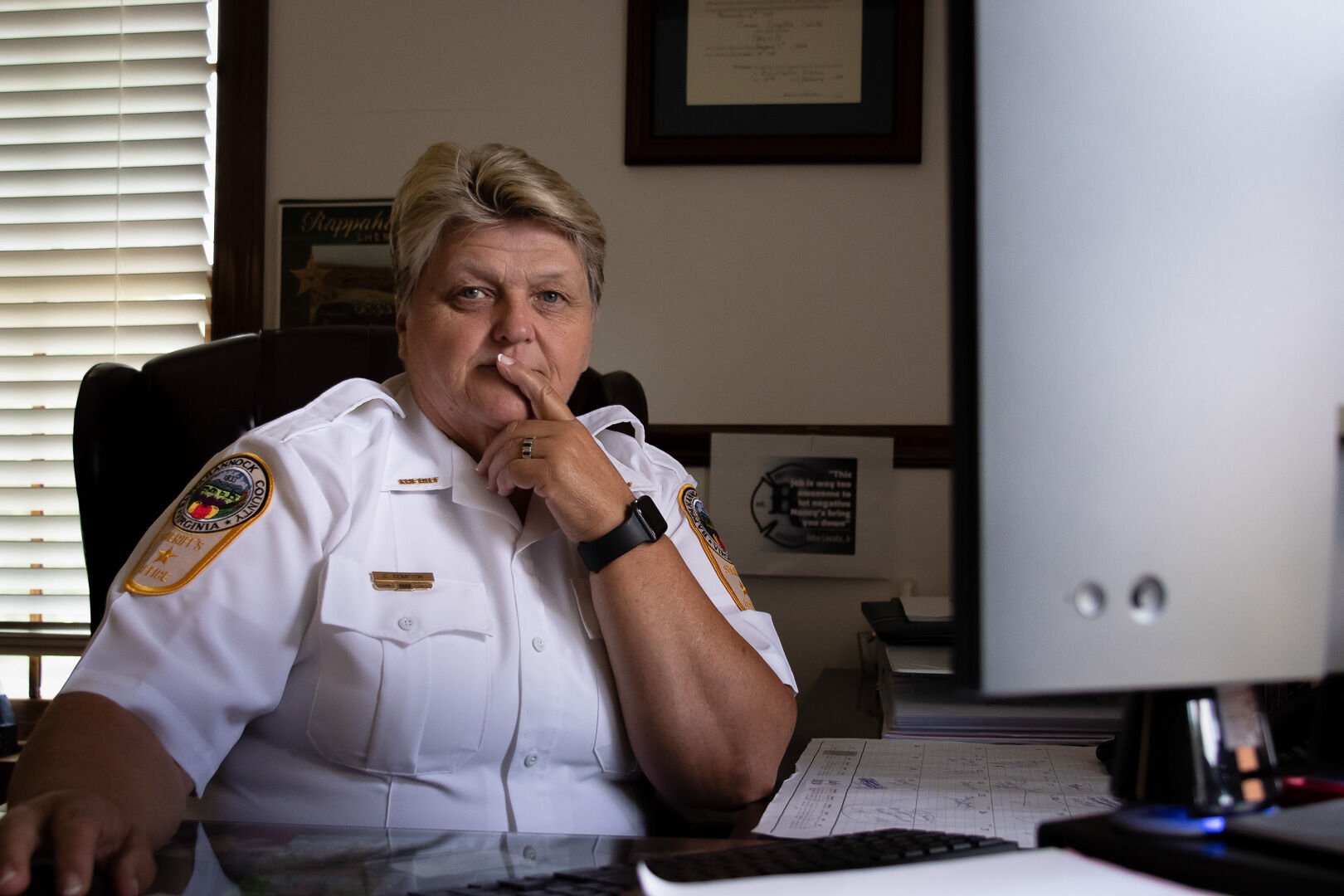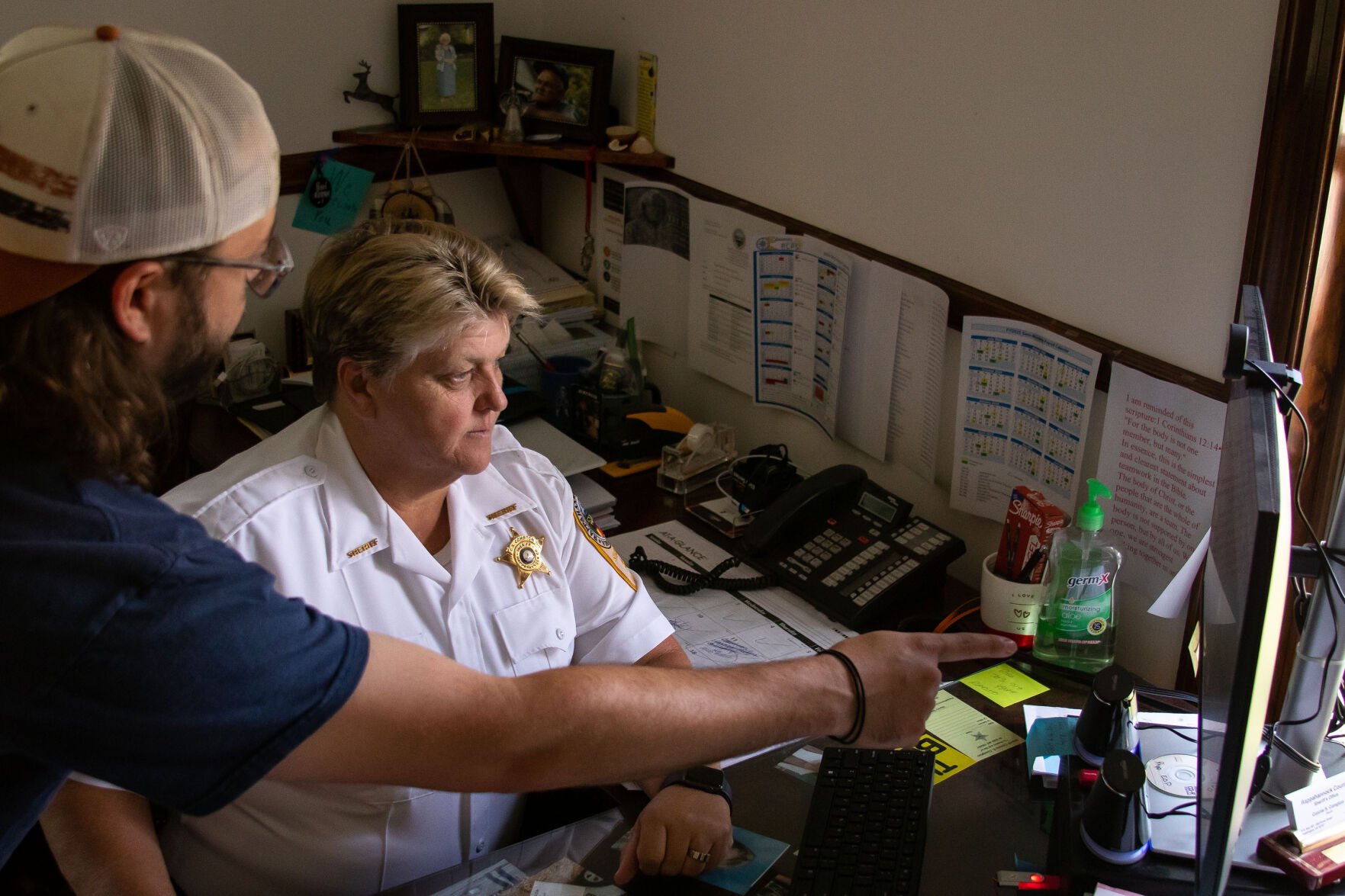‘If we saved one child, then that’s one child we saved’
Chris Garcia knows firsthand just how dangerous the internet can be for kids from his work as an undercover detective with the Rappahannock County Sheriff’s Office.
In June, a 41-year old man traveled to Rappahannock from a county over 30 miles away to meet a 14-year-old girl he had been chatting with and soliciting online, according to the Sheriff’s Office.
In reality, Garcia was the teenage girl.
When the man arrived at the agreed upon meeting place he was met by law enforcement, who placed him under arrest, adding to the growing list of people apprehended this year through the Sheriff’s Office’s involvement with the regional Internet Crimes Against Children (ICAC) Task Force.
Sign up for Rapp News Daily, a free newsletter delivered to your email inbox every morning.
“There’s so many predators that use these social media platforms to find children … it’s more prevalent than you think,” Garcia said in a recent interview along with Sheriff Connie Compton in her office. “You don’t know who you’re talking to on the other side of the internet and … it’s easier to take advantage of a child than an adult.”
Through undercover operations, the department hopes to take predators off the internet before they act.
‘A proactive approach’
The rise of social media and cellphone use by children has brought along with it a rise in internet predators.
Garcia has taken the lead on the Rappahannock task force, and carries out “preventative” undercover operations, which require extensive training. He monitors online accounts designed to look like those of children and teens to see if any illegal interactions are initiated by adults that may lead to solicitation or exploitation.
So far this year, Garcia said, nearly a dozen potential predators have been identified by the work of the task force.
“We’re taking preventative measures … and instead of waiting and handling stuff as they come in, try to take more of a proactive approach and stop offenders before they offend,” Garcia said. “Once we follow certain steps and investigative measures, if it reaches to a point where, ‘hey, this person might be a potential child predator,’ then we take the appropriate steps to either make an arrest, or figure out how to go forward.”

07312024_Sheriffs_ICAC_002-web.jpg
Sheriff Connie Compton working on her computer in her office in Washington.
“You always have these people who think we’re setting them up, it’s not that,” said Sheriff Connie Compton. “It’s that they’re trying to get with a child, and we’re trying to prevent that from happening.”
The Sheriff’s Office also receives alerts from the National Center for Missing and Exploited Children (NCMEC) when suspicious online activity is detected in its jurisdiction.
Garcia said many parents do not realize how at risk their child could be. He said working on task force cases opened his eyes to how easily a child could be exploited. He encourages parents to monitor children’s phones and social media and gaming accounts, and have discussions with them about the potential threat online strangers pose.
In many cases, Garcia said, if parents discover inappropriate interactions on their child’s phone, they will only handle the issue at home. Garcia said that is fine, but if law enforcement is not alerted, the offender can just move on to their next potential victim.
Compton and Garcia urge parents to report potential predators, and emphasized that all calls and tips are confidential, especially when it involves children.
“I think it’s important that the parents know what their kids are doing,” Compton said. “If [kids] don’t know who they’re talking to, they shouldn’t be talking to them. These people, they’re not good people.”
A collaborative effort
In Virginia, the task force is headed by the Virginia State Police, part of a national ICAC Task Force program established in 1998 to combat the exploitation and abuse of minors on the internet. The national program operates through partnerships with state, local and federal law enforcement agencies, and in total, conducted over 184,700 investigations into potential online abusers in 2023.
Compton said as part of the Northern Virginia/D.C. Metro region of ICAC, Garcia and her office have access to institutional knowledge and resources from other departments.
“Chris wears a couple of different hats, even though he has one title,” Compton said. “I think being part of ICAC definitely helps, because Chris can pick up the phone and get other people that would assist him in working these cases that have that knowledge, that have worked these cases, probably for years, in bigger agencies.”

Chris Garcia and connie compton
Detective Chris Garcia, who heads up the ICAC Taskforce operations in Rappahannock, shows Sheriff Connie Compton something on her computer at the Rappahannock County Sheriff’s Office in Washington.
Garcia said the regional task force is very team-oriented, with ICAC officers in constant communication with each other, offering support on specific cases or collaborating to take down a suspect.
The task force is grant funded, and has provided funds for the sheriff’s office to purchase new equipment, Compton said, like cellphones and computers used to carry out online investigations. Garcia has also been provided with in-depth training on “undercover chat” and how to interact with suspects online.
“If we saved one child, then that’s one child we saved,” Compton said. “Kids are innocent ….The internet is great, but some kids don’t understand how bad the internet can actually be.”
Anyone with suspicion of or information regarding a potential internet crime against a child is urged to contact RCSO at (540) 675-5300,[email protected] or report abuse to the NCMEC CyberTipline at report.cybertip.org.
Ireland Hayes is a reporter for Foothills Forum, a nonprofit organization that supports local news in Rappahannock County.





